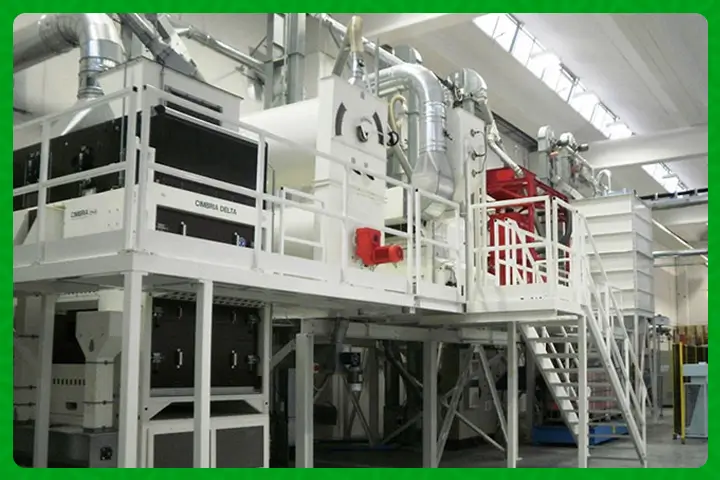
Namibia is poised for an agricultural transformation of epic proportions with the issuance of a tender for the design and construction supervision of seed processing plants across five strategic regions. This visionary initiative aims to bolster domestic seed production, reduce costly imports, and fortify the nation’s agricultural self-reliance. Deputy Minister of Agriculture, Water and Land Reform, Anna Shiweda, unveiled this ambitious project during her recent tour of the northern regions, marking a watershed moment in Namibia’s agricultural history.
Seeds of Self-Sufficiency:
The scope of this consultancy encompasses the construction of three brand-new Seed Processing Plants in the Zambezi, Kavango East, and Oshikoto regions. Additionally, an existing facility will be upgraded to create another Seed Processing Plant in Kavango West, while rehabilitation work will breathe new life into an existing Seed Processing Plant in Omusati.
A Costly Dependency:
Namibia’s reliance on seed imports has been a financial burden. From the third quarter of 2022 to the first quarter of 2023, the country has expended over N$58.3 million on vegetable and maize seeds. Vegetable seeds, excluding beet seeds, accounted for the lion’s share of imports in the third quarter of 2022, amounting to N$9.4 million. South Africa claimed a staggering 91.3% of the market share as the primary import market. The trend continued in the last quarter of 2022, with N$28.1 million spent on importing 496 tons of maize seeds, 45.4% of which came from Zambia. In the first quarter of 2023, N$20.8 million was allocated to vegetable seeds imports.
Agricultural Empowerment:
To counter this costly dependence on external sources, the Ministry of Agriculture, Water and Land Reform has initiated a groundbreaking project. It involves the registration of 777 individual farmers and eight cooperatives, institutions, and entities as seed growers. These seed growers will play a pivotal role in multiplying certified seed varieties, ensuring timely access to high-quality certified seeds for all farmers.
NAMSIP: A Catalyst for Change:
The Namibia Agricultural Mechanisation and Seed Improvement Project (NAMSIP) has been instrumental in this endeavor. It supported the production of 1,057 tonnes of certified seeds and 117 tonnes of foundation seeds. Certified seeds have been distributed to farmers through Agricultural Development Centers (ADCs) across all crop-growing regions. Foundation seeds have been supplied to registered seed growers to further multiply certified seeds.
A Boon for Employment:
The ripple effect of these seed-related activities has been profound. The Ministry reports that it has created temporary employment for 4,519 individuals, fostering economic empowerment and gender inclusivity, with 1,575 men and 2,944 women benefiting from these opportunities.
Building for the Future:
The Ministry has embarked on the upgrading of the Irrigation System at Mannheim Crop Research Station to facilitate the multiplication of certified seeds, a testament to its unwavering commitment to self-sufficiency. To ensure sustainability, staff members have been equipped with the skills needed to operate and maintain agricultural machinery and equipment, furthering ownership and self-reliance in the agricultural sector.
Namibia’s venture into constructing Seed Processing Plants is a game-changer, paving the way for agricultural self-sufficiency and economic empowerment. As this ambitious project takes root and blossoms, it will not only reduce reliance on costly imports but also usher in a new era of agricultural prosperity, ensuring a bountiful harvest for the nation and its people.
Stay updated with the latest farming tips and agriculture industry news from Africa by subscribing to our newsletter. Don’t miss out on valuable insights and updates. Follow us on Twitter, LinkedIn, and Facebook to join our farming community and stay connected with us.



















